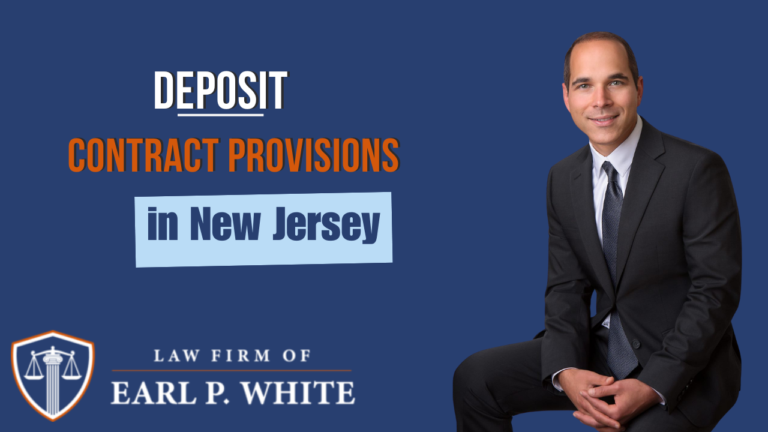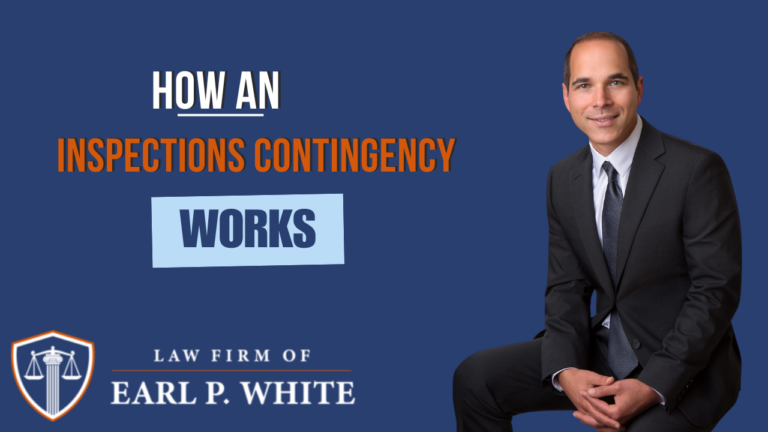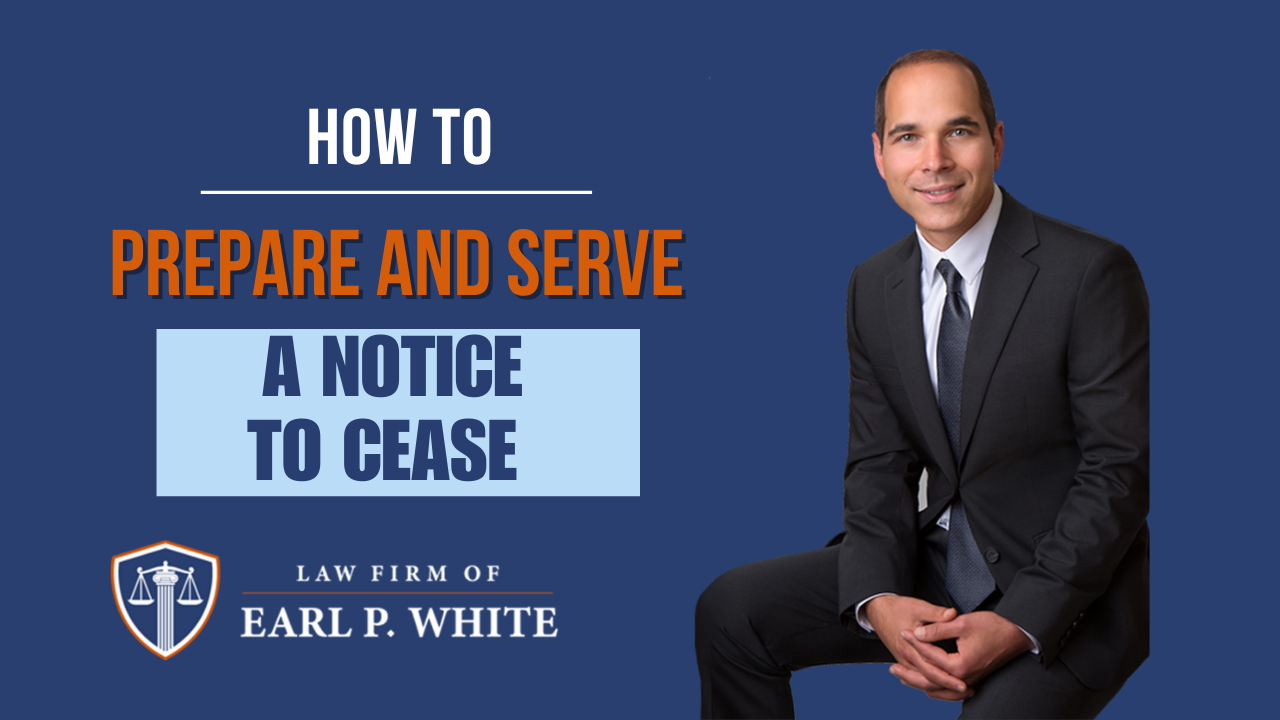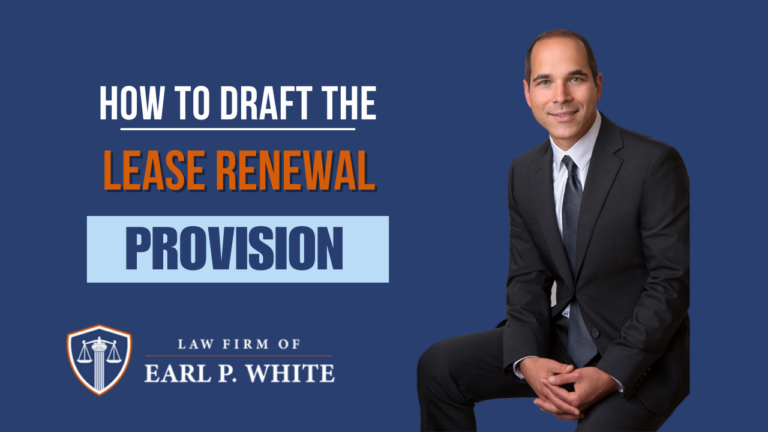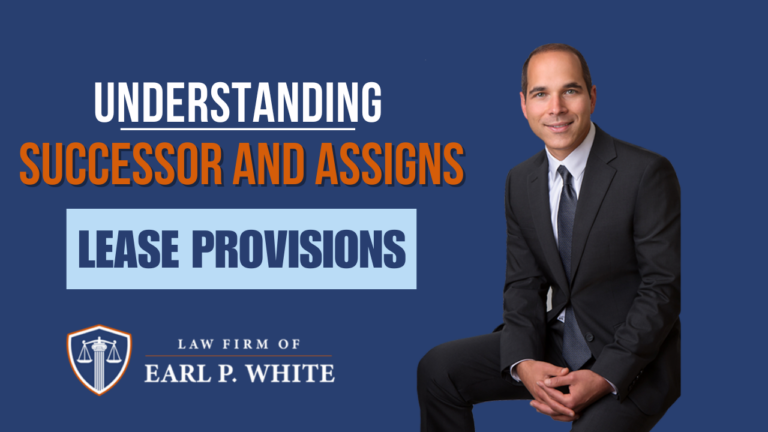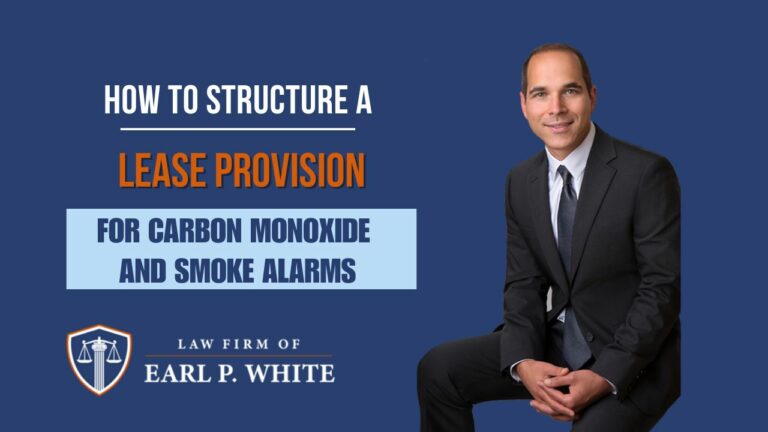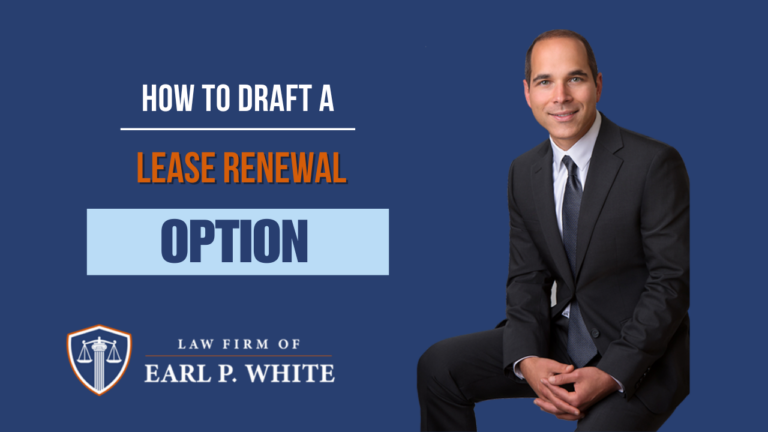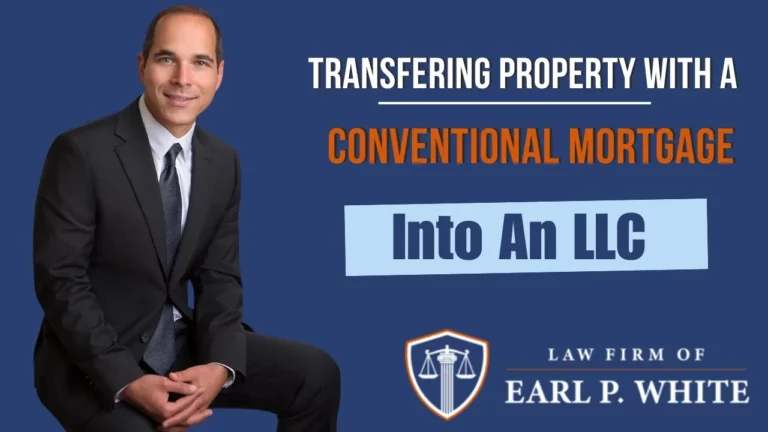Are you putting together a plan for probate in the future or need to file now? Preparation for estate administration is vital for seamless distribution of assets, minimizing disputes among heirs, and compliance with laws.
Members of our free Real Estate Law Newsletter receive exclusive access to resources for landlords, investors, and other real estate professionals. Join today!
This Ultimate Guide to Probate in New Jersey is your guide through probate and estate administration.This blog will help current and future exectors and adminstrators understand how probate works in New Jersey, as well as the costs and legal requirements. Learn how to avoid probate, types of estate administration, if an attorney is necessary, and how long probate takes.
Clarity on estate administration will help you plan for the future and act in the present with confidence and peace of mind.
Before diving into the guide, several defintions will help provide context:
- Probate: Legal process of administering the estate of a deceased person.
- Estate: Property owned by the deceased person that must be distributed under the probate process.
- Will: Document stating how an individual wants their property handled after death, including who will manage their estate.
- Surrogate Court: Responsible for proving wills, appointing executors and administrators, and supervising asset distribution.
- Executor: Court appointed manager of an estate when there was a will.
- Administrator: Court appointed manager of an estate when there was no will.
- Petition: Document filed with the court to begin estate administration.
- Letters Testamentary: Court issued document authorizing a person to manage an estate if there was a will.
- Letters of Administration: Court issued document authorizing a person to manage an estate if there was no will.
- Testate: Dying with a will.
- Intestate: Dying without a will.
- Trust: Legal arrangment avoing probate where a grantor places propery in a trust, which is managed by a trustee, for a beneficiary.
Need assistance with drafting a will or trust, estate planning, or filing for probate and estate administration? Call us at 201-389-8275 or visit the Contact Us for experienced and specialized attorneys.
What is Probate in New Jersey?
Probate, at its core, is the legal process that happens after someone dies. It involves identifying and gathering the deceased’s assets, paying off debts or taxes owed by their estate, and distributing remaining assets to beneficiaries. In New Jersey, this process can look a bit different depending on whether there’s a will.
The Differences: With vs Without A Will
If you’ve left behind a will – known as dying ‘testate’ – probate starts with validating your last testament. The executor named in your will gets appointed by the Surrogate Court of New Jersey and takes charge of handling your affairs.
But if you pass away without having drafted a will – called dying ‘intestate’ – things get more complex. Here, state laws decide who administers your estate and inherits what you leave behind; typically it falls to closest relatives like spouses or children first.
Different Types of Probate
New Jersey has two types of probates: unsupervised and supervised. Supervised probates, where the court oversees every step, are rare but occur when conflicts arise among heirs or beneficiaries about asset distribution or debt payment.
In contrast, unsupervised probates tend to be more common for simple estates where no disagreements exist among involved parties. Here, executors have the freedom to administer estates without court interference unless issues crop up down the line.
How to Avoid Probate in New Jersey
The process of probate can be lengthy, costly, and public. But with the right strategies, you can avoid it altogether.
Joint Ownership
A common method to bypass probate is through joint ownership. If a property is owned jointly with rights of survivorship or as tenancy by entirety (for married couples), then upon one owner’s death, the property automatically passes on to the surviving owner without going through probate.
Beneficiary Designations
Certain assets allow for beneficiary designations – these include retirement accounts like IRAs and 401(k)s, life insurance policies, and payable-on-death bank accounts. Upon your passing, these assets will directly transfer to your designated beneficiaries without needing probate intervention.
Living Trusts
Living trusts, also known as revocable trusts, are another effective tool for avoiding probate. By transferring your properties into a trust while you’re alive but retaining control over them during your lifetime, you gain flexibility and avoid having those assets go through probate after death.
Gifting Assets Before Death
If you give away some of your estate before dying (as gifts), they won’t be part of the estate when the time comes for distribution post-death, thus escaping from being dragged into any potential ‘probating’ messiness later on.
By using these methods, not only do we save time by avoiding lengthy court processes, but we also gain privacy since no public records are involved, and direct disbursement if there is no probate. This can ease the process of estate distribution, prevent delays or family conflicts, and even save on costs associated with probate.
It is essential to bear in mind that each case is distinctive, so a plan tailored to your individual requirements must be implemented. An experienced estate planning attorney can help guide you through these decisions.
The Small Estate Threshold in New Jersey
When it comes to small estates, New Jersey has a simpler approach. If the estate’s value doesn’t go beyond
Key Takeaway:
Avoiding probate in New Jersey can be straightforward. You could use joint ownership, name beneficiaries for specific assets, establish a living trust, or gift your possessions before passing away. These strategies not only save time and preserve privacy but also help dodge family disputes and cut down on probate-related costs. But remember – every situation is different so it’s wise to seek professional advice.
Is Probate Mandatory in New Jersey?
The answer to whether probate is required in New Jersey hinges on a variety of elements. But, let’s get to the bottom of this.
Different Types of Assets
Certain assets don’t need to go through probate. These include jointly owned property and accounts with named beneficiaries like life insurance policies or retirement accounts. The New Jersey Revenue Department explains these nuances clearly.
However, if an asset was solely owned by the deceased without a beneficiary designation, it generally has to go through probate. For example, imagine you’re left your grandma’s antique teapot collection – that would likely need to be processed through probate.
Estate Administration for Intestate Cases
If there isn’t a will (also known as dying intestate), estate administration becomes necessary. It follows similar steps as regular probates in NJ courts, but it can sometimes be more complex due to lack of clear directives from the decedent.
To put things into perspective: picture sorting out different pizza toppings among friends when no one agreed beforehand – not exactly straightforward.
Influence of Wills on Probating Process
A valid last will can simplify matters significantly because it tells us who gets what part of the pie – quite literally. If all assets are included in such a document and their distribution is specified unambiguously, then yes – those assets have got tickets for ‘Probationville’. The train ride can be smooth with a will that has clearly named executors and beneficiaries.
Size Matters: Small Estate Exemptions
The size of the estate also influences whether probate is necessary. New Jersey offers an expedited process for smaller estates valued at $20,000 or less ($40,000 if the spouse is the sole heir). This simplified process, like taking an express lane in traffic, can save time and resources.
To wrap up this section (not quite literally), whether probate is mandatory in New Jersey hinges on various factors such as asset type, presence of a will, and the size of the estate.
Key Takeaway:
Probate isn’t a must in New Jersey, it hinges on things like asset type, whether there’s a will, and the size of the estate. Jointly owned stuff or accounts with beneficiaries get to dodge probate. But if you’re the only owner without any beneficiary named, you’ll have to face it. And if no will is found? Brace yourself for an intestate case. Having a valid last will can simplify matters.
How Does Probate Work in New Jersey?
The probate process in New Jersey starts with filing a petition at the Surrogate’s Court. This step is crucial to validate the will and appoint an executor, who will manage estate affairs.
To start this journey, you need to submit an application for Letters Testamentary if there’s a will or Letters of Administration if there isn’t one. These documents let you act as the official representative of the deceased person’s estate.
Next comes posting a bond. This safeguard ensures that all responsibilities are met correctly by protecting beneficiaries and creditors from potential misconduct or errors made during administration.
Notifying Heirs and Creditors
In accordance with New Jersey law, it’s necessary to inform heirs about your role as executor. You also have to give notice to any known creditors so they can claim their due amount within nine months from death date under state regulations.
Taking Inventory and Appraisal
This involves listing down all assets owned by decedent including real property, personal items like jewelry or art collections, bank accounts, stocks etc., along with their current market value.
In case you’re unsure about valuation aspects for unique items such as antique furniture or rare collectibles then hiring professional appraisers might be worth considering.
Paying Debts & Taxes
After assessing total asset values it becomes your responsibility to pay off debts owed by deceased party using funds from his/her assets. Keep in mind though – some obligations (like mortgages) may need priority handling over others depending on legal requirements imposed through state legislation.
Remember: If required tax returns aren’t filed in a timely manner, you could face penalties.
Distributing Assets
Once all debts and taxes are cleared it’s time to distribute remaining assets as directed by the will. But if there isn’t one, then New Jersey’s intestacy laws guide this process.
Make sure that you keep records of every transaction for accountability purposes.
Key Takeaway:
Probate in New Jersey starts with filing a petition at the Surrogate’s Court to validate the will and appoint an executor. You’ll need to notify heirs and creditors, take inventory of assets, pay off debts and taxes from these assets, and finally distribute remaining wealth as per the will or state laws. Don’t forget – keep records for accountability.
How Much Does an Estate Have to be Worth to Go to Probate?
The question of when an estate needs to go through probate in New Jersey is a common one. Still, there’s no straightforward response since it relies upon various components.
Typically, if an individual passes away leaving assets worth more than $20,000 with no named beneficiary or joint owner, their estate will need to go through probate. This includes bank accounts, real property, and other tangible assets.
Small Estates and Simplified Probate Process
In New Jersey, there’s a simplified process for smaller estates called the Affidavit for Personal Property of Small Estates. If the deceased person’s entire personal property doesn’t exceed $20,000 ($40,000 if the spouse is the sole heir), you can use this streamlined procedure instead of regular probate.
This affidavit method helps expedite matters and cut down on paperwork. It provides families with quick access to funds needed for immediate expenses such as funeral costs or settling debts without waiting months or even years for traditional probate proceedings.
Larger Estates and Regular Probate Process
If your loved one left behind assets totaling more than these limits (or they owned real estate solely in their name regardless of its value), then full-blown probates become inevitable.
Navigating through this complex legal landscape can feel daunting, but remember that expert help is available. An experienced attorney from our team at Earl P White Law Firm can guide you every step along this journey, ensuring compliance with all laws while minimizing stress during difficult times.
In New Jersey, an estate over $20K goes to probate. But don’t sweat. Small estates have a simplified process and for larger ones, expert help is there. #NJProbateGuideClick to Tweet
How Long Does Probate Take in New Jersey?
In the Garden State, the probate procedure may take a range of time to complete. On average, it might take anywhere from 9 months to 1.5 years. But why such a broad timeframe? Well, several factors come into play.
The Complexity of The Estate
If an estate is complex with many assets or creditors involved, this could extend the timeline. Large estates often have more legal hoops to jump through than smaller ones. Here’s a handy resource on what makes an estate ‘complex’ according to NJ law.
Disputes Among Beneficiaries
No one likes family drama but when it happens during probate—it can really slow things down. If beneficiaries contest a will or disagree about how assets should be divided, this may delay the distribution and extend probate.
Estate Taxes and Debts
Filing taxes for an estate takes time because you need accurate information about all debts owed by deceased persons before filing returns (New Jersey Estate Tax). It’s like doing your own taxes—only much more complicated.
A Typical Timeline for Probate in New Jersey:
- Appointment of Executor/ Administrator: This usually happens within 30 days after death. If there’s no will naming an executor then court appoints administrator.
- Inventorying Assets & Paying Bills: This step may take up around four months depending upon complexity of asset portfolio.
- Filing Estate Tax Returns: This should be done within 9 months of death to avoid penalties.
- Distribution of Assets & Closing the Estate: Once all debts and taxes are paid, remaining assets can be distributed. This is typically done between 1-3 months after filing estate tax returns.
Yeah, it might seem like a real slog, but don’t forget – probate doesn’t have to be an endless grind (NJ Office of Attorney General). With the right prep and open chats
Key Takeaway:
The length of probate in New Jersey can vary, often taking 9 months to 1.5 years depending on the complexity of the estate, any disputes among beneficiaries and handling estate taxes or debts. The process typically involves appointment of an executor/administrator, inventorying assets & paying bills, filing tax returns and distributing assets & closing the estate.
How Much Does it Cost to File Probate
The cost of filing probate in New Jersey can vary, but there are several key factors that contribute. This includes surrogate court fees, attorney charges, and additional costs linked with the process.
Surrogate Court Fees
New Jersey’s Surrogate Courts charge a fee for admitting a will to probate or appointing an administrator if no valid will exists. The cost is dependent on the number of pages in your legal documents; more pages mean higher fees. It’s like buying groceries—the longer your shopping list (or document), the bigger your bill at checkout.
Attorney Charges
Hiring an attorney isn’t mandatory for filing probate in New Jersey but doing so often simplifies matters considerably and can actually save you money by avoiding costly mistakes during the process. An experienced lawyer who knows how to navigate this complex field can be as useful as GPS when driving through unknown territories. While their rates differ based on experience level and complexity of the case, consider this expense as investing in peace of mind.
Add-on Costs Associated with Probating an Estate
Besides these primary expenses, don’t forget about other potential add-ons such as appraisal fees for valuing estate assets or taxes owed by the deceased person’s estate—just like extra toppings on a pizza that add up quickly. Other possible costs include accounting services if necessary to manage financial records associated with settling debts and distributing property according to inheritance laws.
Here’s where you’ll find information regarding state-specific surrogates’ court fees.
Remember: Every situation is unique just like fingerprints–no two probate cases are exactly the same. Costs will vary based on individual circumstances such as estate size, its complexity, and whether disputes arise among beneficiaries that need resolution.
Finally, consider it like a challenging mountain hike—the path may be steep (costly) at times but reaching the peak (successfully completing probate) makes it all worthwhile. And just like hiking gear can make your journey easier, having an experienced attorney to guide you through this legal terrain is invaluable.
Key Takeaway:
Probate costs in New Jersey vary, factoring in surrogate court fees, attorney charges and extra costs tied to the process. More paperwork equals higher fees; an attorney can simplify things and potentially save money. Additional expenses like appraisal fees or taxes may come into play. Costs depend on each unique case’s specifics such as estate size and complexity.
Is a Lawyer Required For Filing Probate?
New Jersey law doesn’t strictly require you to hire an attorney for probate. However, the legal process can be complicated and errors could lead to costly delays. Handling the legal process can be complex, and errors could lead to delays and expenses.
The truth is, while no one will force you to get legal help when filing probate in New Jersey, it’s often smart to do so. Let me explain why.
Legal Guidance on Laws
An experienced lawyer knows the ins and outs of New Jersey probate laws like their own backyard. They can guide you through complex legalese, helping ensure nothing gets missed or misinterpreted – something even more crucial if there’s no will (intestate).
Making The Process More Efficient Through Experience
Ever tried baking a cake without following a recipe? It could turn out fine…or end up tasting like cardboard. Similarly, lawyers have handled countless estates over their careers; they know exactly what needs doing next which saves heaps of time.
Saving You Stress And Time
We all lead busy lives juggling work commitments and family responsibilities. Throw in grieving for your loved one at this difficult time – who has the mental energy left for handling complicated paperwork?
Proper Inventory Of Estate Assets
A good estate lawyer can also help accurately inventory assets — everything from real estate properties down to grandma’s vintage brooches — ensuring rightful distribution among beneficiaries.
Hiring professional assistance isn’t just about dealing with mountains of paperwork though…
Tax advice is another big reason people seek out attorneys’ services…
Navigating Tax Waters With Confidence
Estates can have complicated tax implications, from inheritance to estate taxes. An attorney will guide you through this labyrinth, potentially saving the estate thousands of dollars.
Making Sure Legal Documents and Filings Are Correct
No one wants legal troubles from incorrectly completed paperwork or missed deadlines, right? That’s where a probate lawyer steps in – they make sure every detail is spot on.
Key Takeaway:
It’s true, New Jersey law doesn’t demand you get a lawyer for probate. But think about it: they’re experts in local laws, their experience makes the process smooth and saves you time and stress. They can help count assets accurately to make sure everyone gets what they should, and confidently tackle any tricky tax issues. Plus, they’ll always have your legal back.
Is there a Time Limit to File Probate in New Jersey?
No strict cutoff point exists for initiating probate in New Jersey after someone passes away, but it is still advisable to start the process promptly. There isn’t a strict deadline to start probate after someone dies in New Jersey. But you’ll want to get the ball rolling sooner rather than later for several reasons.
Why It’s Wise To Start Probate ASAP
You might ask, “If there’s no set time limit, why rush?” Well, delays can lead to problems down the line. For one thing, many financial institutions will freeze accounts upon learning of an account holder’s death.
This could leave bills unpaid and create stress for family members who rely on those funds. Starting probate promptly helps unlock these assets and ensures things run smoothly.
Serving Notice To Heirs And Creditors
Beyond unfreezing accounts, another reason to act quickly relates to creditors’ claims against the estate. New Jersey law gives creditors nine months from the date of death to file their claims – regardless of when you begin probate proceedings.
If you wait too long before filing for probate and notifying creditors officially about your loved one’s passing – this window may close without any creditor having knowledge or opportunity thus protecting the estate from debts unknown at the time of death. It’s also important because beneficiaries need timely notice so they can plan accordingly with respect outstanding bills tied up within estates value.”
Navigating The Legal Maze Of Outstanding Bills
In dealing with outstanding bills after someone passes away often presents unexpected challenges. New Jersey’s Senior Gold Prescription Discount Program is a great resource for seniors struggling with medical bills, but other debts can quickly pile up.
Filing probate swiftly helps manage these obligations and prevents additional stress from unexpected late fees or collection efforts.
The 9-Month Limit on Debt Claims Against an Estate in New Jersey
New Jersey law provides creditors nine months to file claims against an estate. But remember, this clock starts ticking at the time of death – not when you file for probate. So if you wait too long to start proceedings, that window may close before all potential creditors are identified and notified.
Key Takeaway:
In New Jersey, there’s no strict deadline to start probate after a death. But getting started ASAP can prevent financial stress for family members and avoid issues with creditors’ claims on the estate. It also helps manage obligations like unpaid bills swiftly, keeping additional stresses at bay.
10. How Much Does an Estate Have to Be Worth to go Through Probate in New Jersey?
The worth of the deceased’s assets can be a major factor in deciding if probate is required or not.
In New Jersey, the worth of the deceased’s assets is pivotal when deciding whether probate is necessary.
This requirement stems from state laws that aim at easing the burden on smaller estates and fast-tracking their distribution process.
Probate Threshold for Estates
New Jersey has set specific monetary limits below which an estate does not need to undergo formal probate proceedings. The standard limit stands at $20,000. If your loved one left behind property worth less than this amount, you’re eligible for a simplified small estate process instead of full-blown probate proceedings.
This provision reduces time spent on court processes and saves heirs from unnecessary legal fees associated with regular probates. Learn more about small estate procedures here.
An Exception for Spouses
If you are the surviving spouse and sole heir of your partner’s property, New Jersey law gives you even more leeway. In such cases, estates valued up to $40,000 do not require traditional probating – twice as much as non-spousal heirs.
This approach acknowledges that spouses often share ownership rights over properties during marriage; hence they shouldn’t have difficulty claiming these assets upon their partner’s death. Read further about spousal exemptions here.
Probate for Larger Estates
If the estate’s value exceeds these limits, it must undergo regular probate proceedings. The process includes submitting a petition to the surrogate court, notifying potential heirs and creditors, settling debts and taxes before distributing assets.
The exact cost of this process varies based on factors like attorney fees and appraisal costs. You can find more details about full probates here.
Avoiding Probate with Estate Planning Tools
If your estate exceeds these limits, using living trusts or joint ownership can let you skip probate altogether.
Key Takeaway:
In New Jersey, an estate’s worth determines if it needs probate. If under $20,000, you can use a simplified process. But if you’re the spouse and sole heir, estates up to $40k skip traditional probating. For larger values though, full-blown proceedings are necessary – but using living trusts or joint ownership could help avoid this.
FAQs in Relation to Ultimate Guide to Probate in New Jersey
What are the steps of probate in NJ?
The process includes filing a petition, posting bond, notifying heirs and creditors, inventorying assets, paying debts and taxes, distributing property, and filing final accounts.
How much does an estate have to be worth to go to probate in NJ?
An estate must exceed $20k ($40k if the spouse is the sole heir) for formal probate. Smaller estates can use New Jersey’s simplified process.
What assets are exempt from probate in NJ?
Jointly owned properties, life insurance proceeds directly payable to beneficiaries, and retirement accounts with named beneficiaries don’t need to go through probate.
How long does it take for an estate to go through probate in New Jersey?
In New Jersey, expect the entire Probate procedure might last between 9 months up till two years or more depending on the complexity of the case.
Conclusion
Navigating probate in New Jersey isn’t a walk in the park, but you’re now equipped with the knowledge to face it head on.
Understanding what probate is and how it works? You’ve got that down. Strategies to bypass this complex process? You know them all too well.
You’ve learned when an attorney might be necessary, as well as gotten insights into costs involved and timelines for completion. It’s clear: The Ultimate Guide to Probate in New Jersey has been your reliable compass.
Your next steps are straightforward: apply this newfound wisdom practically and strategically navigate through these waters smoothly. Remember – every storm runs out of rain eventually!
